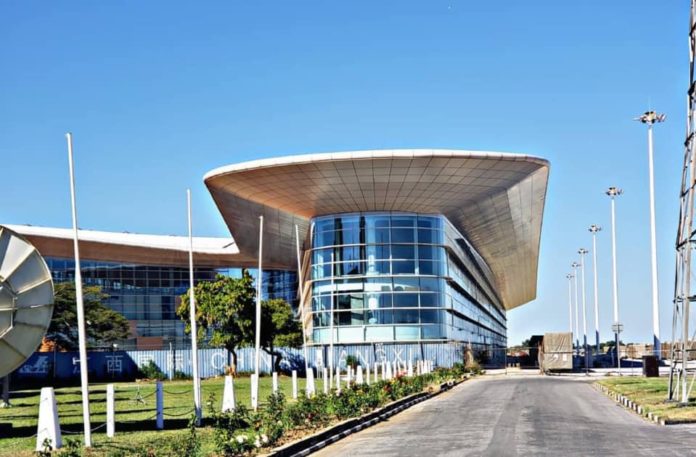The Zambia Airports Corporation Limited (ZACL) is focusing on strengthening its non-aeronautical revenue generating projects at Kenneth Kaunda International Airport which will turn the area around the airport into an Aerotropolis or airport city.
In a statement released to the Lusaka Star by ZACL Communications and Brand Manager, Mweembe Sikaulu, said that the project was part of the corporation’s strategic plan for the year 2017-2021.
Ms. Sikaulu said that with airports becoming “cities,” the importance of generating non-aeronautical revenue streams will have a major impact on the developments in the aviation sector and contribute to the positioning of the airport’s competitiveness.
She added that once the airport was developed, it would contribute towards the development of the country’s existing industries as drivers of growth.
“The airport will bring about new opportunities and better the lives of locals by creating more investment, business and job opportunities,” said Ms. Sikaulu.
She said that the land already has developments underway including a shopping mall, office park and two hotels.
Ms. Sikaulu noted that ZACL however expects the land utilisation plan to present the corporation with numerous business opportunities that can be explored once completed.
She stated that the cargo terminal will also provide an opportunity for the revival of agriculture and horticulture exports among other industries.
“We have obtained the services of a Dutch consultancy firm, the Netherlands Airport Consultants to do a land utilisation plan and they have submitted a finalised plan for the 550 acres of land at the airport in Lusaka” said Ms. Sikaulu.
ZACL communications manager said that the aerotropolis concept has an airport as the centre of the city activity with all ancillary city functions revolving around it.
She further explained that Lusaka is believed to be the fastest growing city in Central Africa, according to the Southern African Development community (SADC).
“This gives ZACL an advantage of realising its vision of making Zambia an aviation hub as we are centrally located and continue to attract foreign investors,” she noted.
Zambia as a country has one of the world’s fastest growing populations with the United Nations (UN) predicting numbers to triple by the year 2050.

